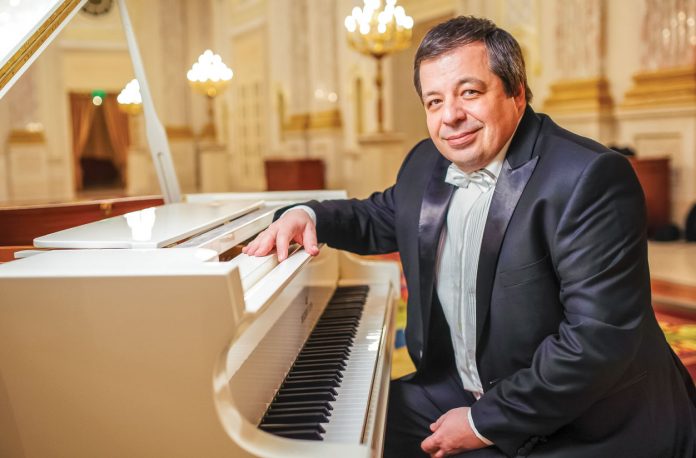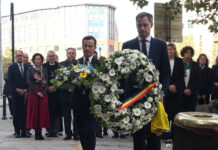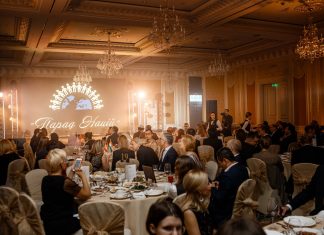One of the best pianists of the day, the founder of the Odessa International Classics Festival, Aleksei Botvinov, tells the Fashion of Diplomacy what cultural diplomacy means for him, whether it is possible to play the piano at the Swiss parliament, and how the classical music helps to survive the difficult times…
Tell us about how your musical career began. What exactly led you to this?
– Since I am from the family of musicians, this could not but affect the choice of profession. I started to be taught the piano playing. My mother taught me.
She is also a pianist. The training began when I was seven years old. However, my parents did not have the bee in the bonnet to make me a professional musician. I was not a ponder kind, everything happened calmly and slowly, but when I was thirteen – fourteen years old I felt that I wanted to link my life with music.
The public in Ukraine, Russia, and the EU is well known to you. What is the main difference between Kyiv, Moscow and, let’s say, Milan listener of classical music?
– Of course, there is a certain difference. It, above all, lies in the mentality of people.
If we talk about the Slavic audience, then it is surprisingly emotional, warm, happy to respond to music, loves to think and listen to music. The Italian and Spanish public, on the other hand, are more temperamental in its nature and respond to music not very thoughtfully, but violently. In addition, when it comes to Italy or Spain, it is accepted to speak not loudly during the concert, and in fact the musician is performing to the accompaniment of the audience’s conversations. In Germany, on the other hand, the hall is completely silent. The applause can be loud, but not the ones we are accustomed to in Kyiv. In other words, I can say that viewers are different in each country, and this is dictated by mentality and temperament.
Tell us, please, about the Odessa Classics Festival, where you are an art director and organizer. How difficult is it to carry out such a large-scale event every year and does the state help you in organizing the festival?
– It is very difficult to cope with, because there is no state budget, in fact. However, this year there appeared region and city budgets for the needs of the festival. Last year, the city budget also provided some funds for Odessa Classics. Consequently, there are some changes at the local level. In Europe, those of my colleagues who carry out such events will receive considerably larger budgets that cover most of the festival’s needs. Therefore, they can plan their festivals a few years in advance. It is very difficult for me to create a budget every year even with some support from local authorities. You have to contact philanthropists. This is the main difficulty, because there is no opportunity to plan the event ahead. Therefore, the festival starts from scratch every year. And this is difficult, because it is necessary to negotiate with the artists in advance. Sometimes it seems that conducting such cultural events is more important for us than for the state. As for me, such a policy is not far-sighted.
How successful is the Bremen-Odessa music partnership? Do you see such a partnership as a manifestation of cultural diplomacy?
– Yes, of course, I consider this just as activity within the process that you had called cultural diplomacy. Three years ago, visiting Bremen and speaking to artists, including the representatives of the well-known and famous Bremen choir, I realized that these people did not know anything about what was happening in our country. However, when our cooperation began when they arrived in Odessa and looked at what and how our city lived, Ukraine stopped being something abstract for them. They told their relatives and friends about Ukraine. Such projects can be definitely attributed to cultural and national diplomacy. Also the Odessa Classics event was held in Switzerland in March this year, within which a concert of Ukrainian performers took place. They played Ukrainian and European music. The following day, the annual Ukraine-Switzerland Forum began, and at the beginning of this forum, the concert took place in the Swiss parliament. The representatives of the Ukrainian delegation succeeded in persuading Swiss high officials to put the piano in the parliament, because such things are usually prohibited. So, for the first time in my life I had to play in the parliament. But not only that, the whole forum was actually held under the sign of music, and many politicians, both Ukrainian and Swiss, who made speeches there, talked about the importance of the cultural factor in international cooperation.
You have a lot to do with Russian cultural figures and with Russian cultural institutions. How did the dramatic events of 2014–2018 affect your cooperation with them?
– Definitely there was an influence. Let’s say my friendship with Russian writer Mikhail Shyshkin, who had emigrated to Switzerland a long time before, did not stop because of the war. After all, he is one of the most active critics of Putin’s regime. He often makes speeches in the pages of the world’s leading magazines – the New York Times, the Washington Post and the Guardian with the articles directed against the current Kremlin authority. On the other hand, contacts were interrupted with many of my friends that live in Moscow, because they had supported Russian aggression against Ukraine.
I also stopped performing there because of aggression. By 2014, I used to have a concert activity in Russia, but the annexation of the Crimea and the invasion of the Donbas put it to an end. I do not consider it possible for me to have any cooperation with this country.
What would you like to wish the readers of our magazine?
– The time is not easy now and that is why I would like to wish the readers of your magazine to listen to classical music. First of all, it does not lie. At this time there is too little truth around.
Secondly, it actually gives strength at the difficult moments of life – both in personal life and in the life of an entire nation. Classical music gives you the right mood and it is much easier to suffer difficult times through with it. I recommend it.













